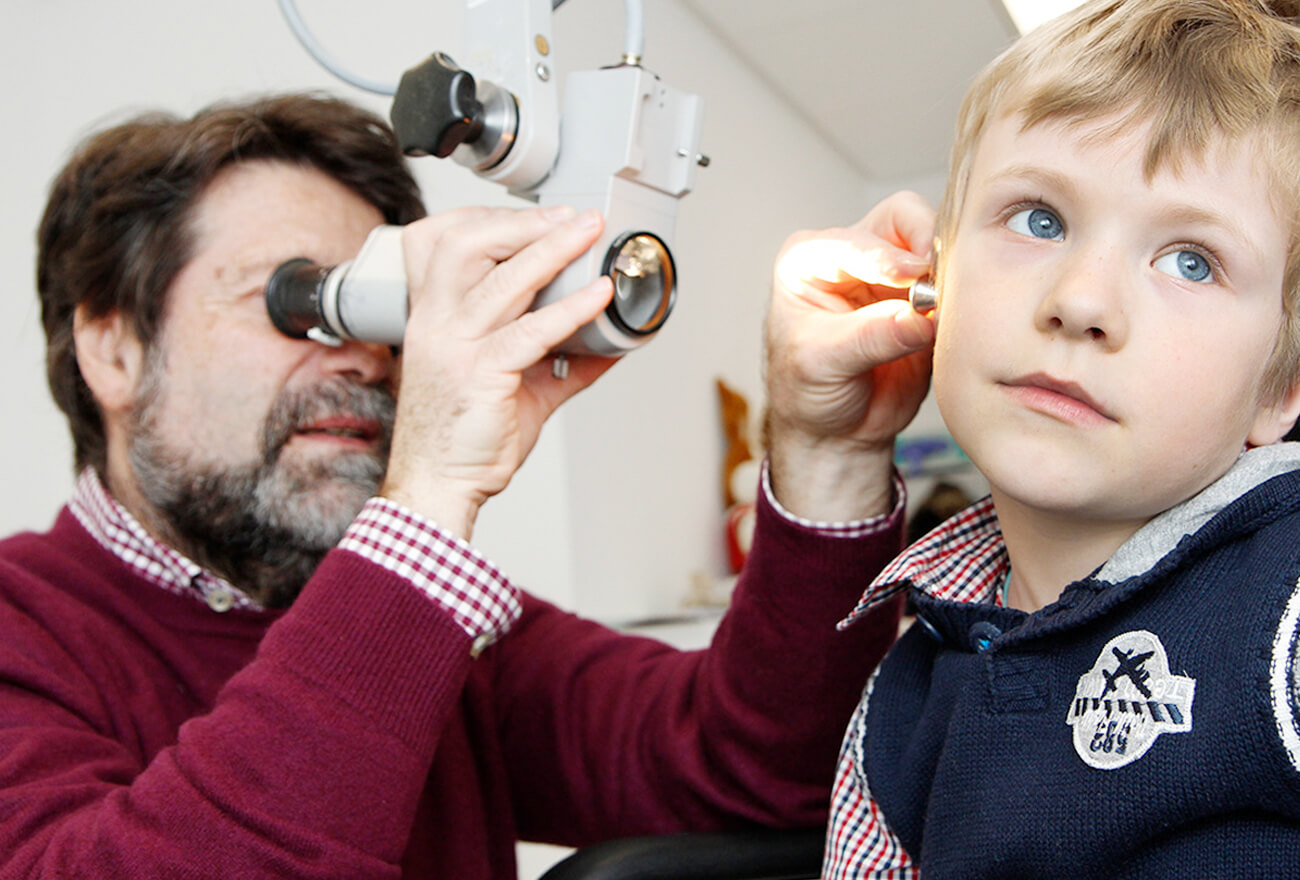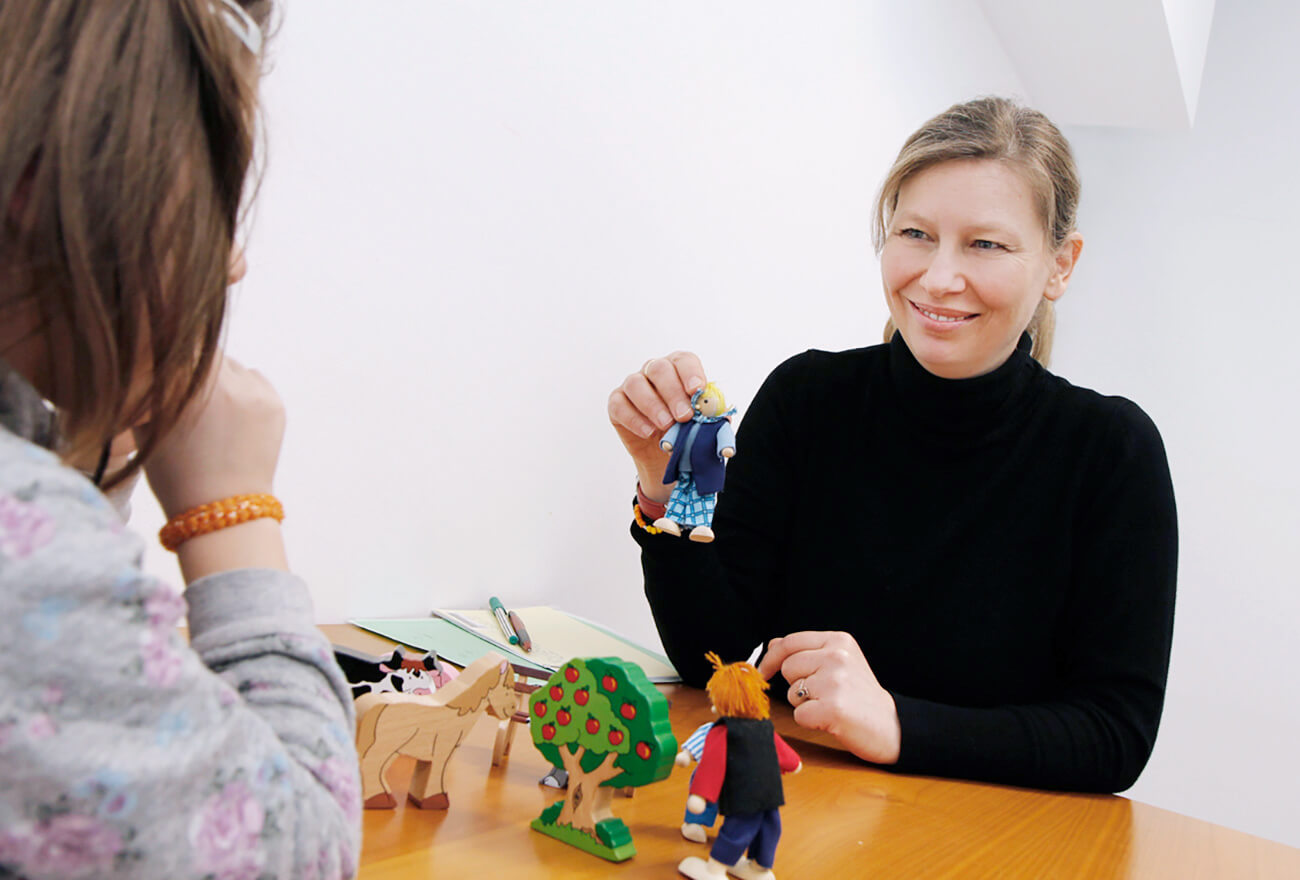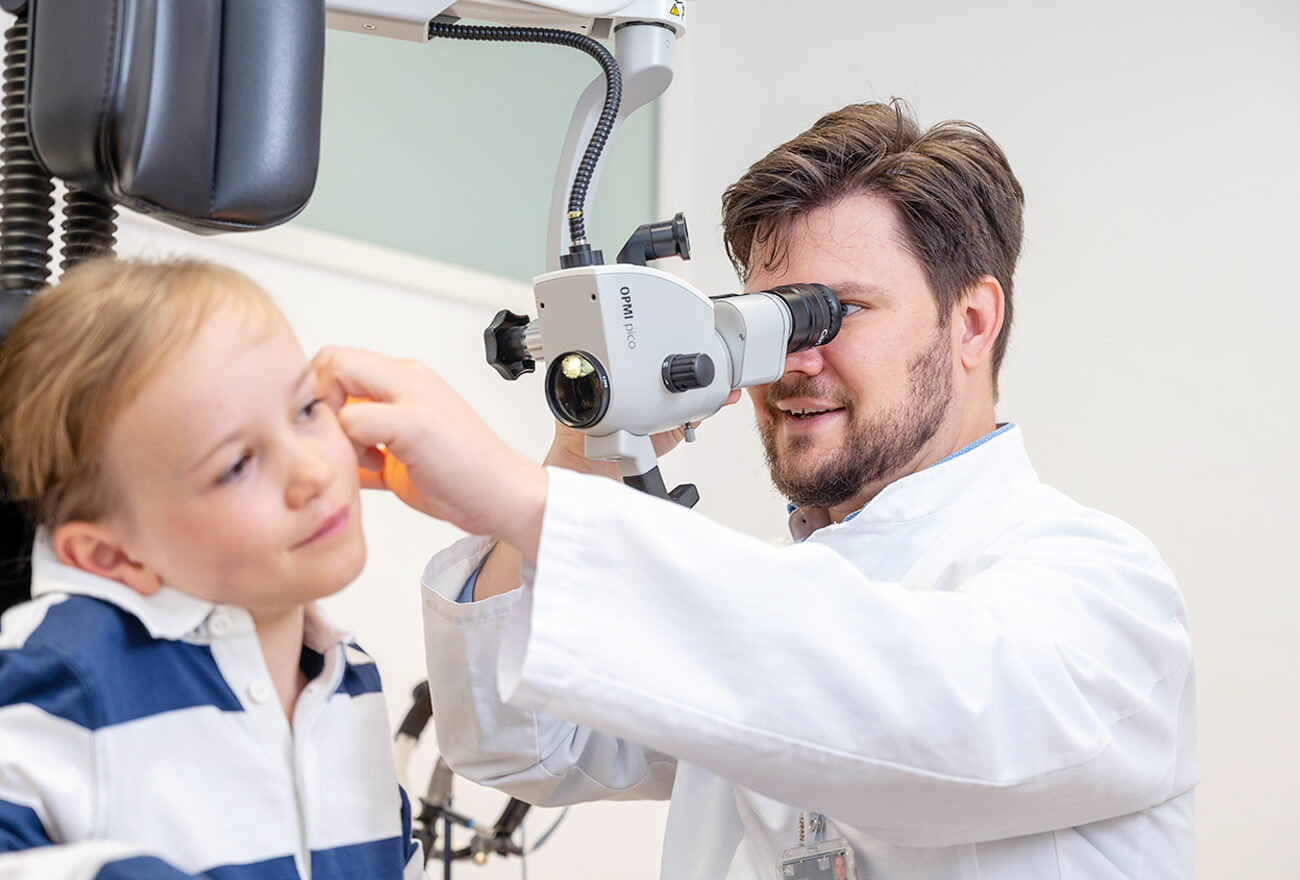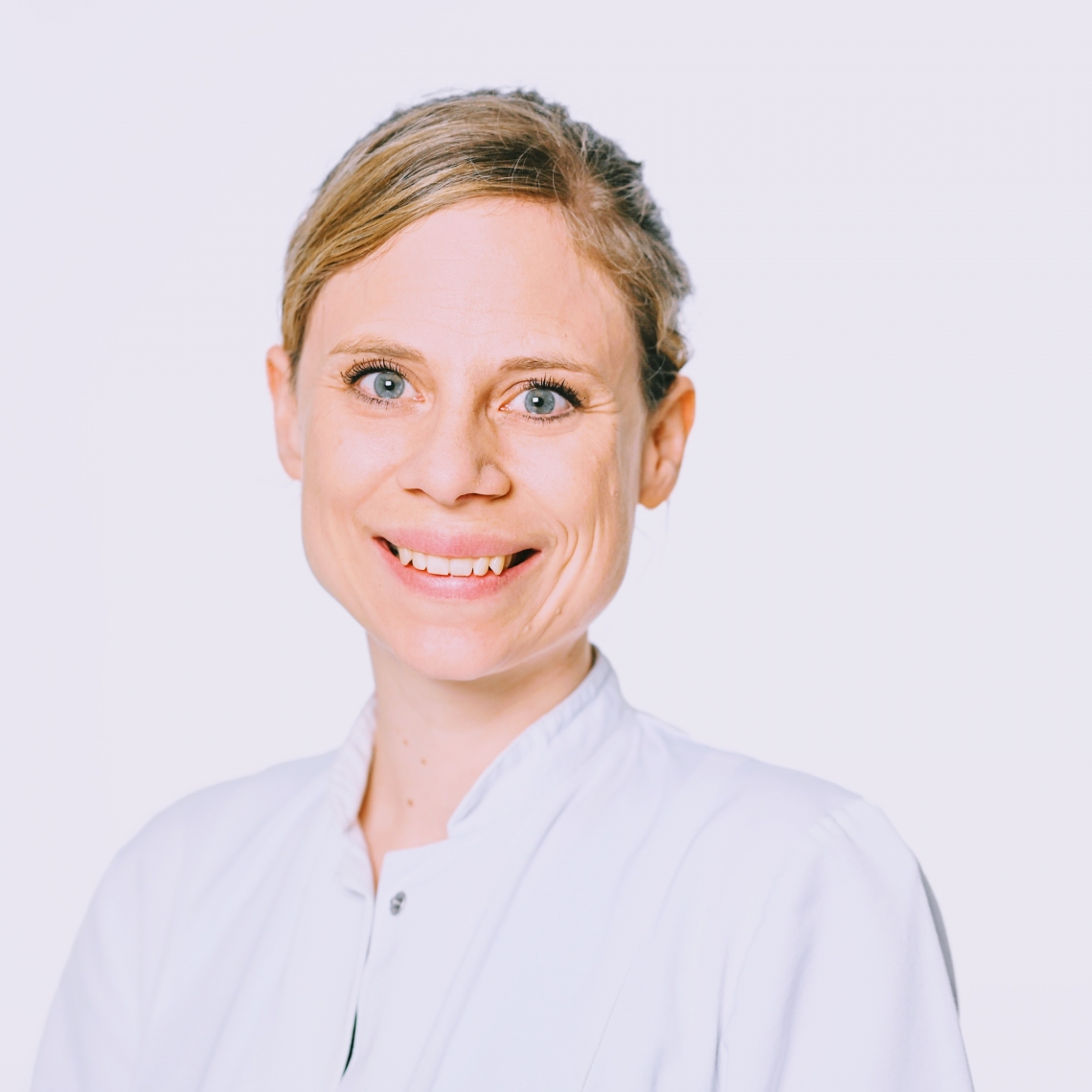Pediatric audiology
In our pediatric clinic we offer all necessary examinations for the early detection and treatment of hearing and speech development disorders in children in an environment suitable for children.
A proper hearing ability is an essential prerequisite for an age-appropriate linguistic and general development. In 2009, universal newborn hearing screening was introduced to detect and treat hearing disorders as early as possible. During the first days of life, hearing ability is tested on the sleeping child without any stress for the child and mother.
If your child is suspected to have a hearing loss, the confirmation diagnosis must be carried out. This involves an ENT medical examination of the child after an introductory conversation and age-appropriate hearing tests, usually during spontaneous sleep.
If you suspect that your child's speech development is lagging behind, the ENT examinations and hearing tests are followed by a speech examination (logopaedic diagnostics). These examinations take about two hours. If your child has unexplainable performance fluctuations or weaknesses after school enrollment or during the first elementary school classes, this may be due to an auditory processing and perception disorder (AVWS).
In this case, the examinations include extensive hearing tests and a logopedic examination of speech processing, and take about two and a half hours. Since AVWS should be distinguished from dyslexia (LRS) or attention deficit disorder (ADD/ADHD) due to a different therapeutic approach, we recommend the exclusion of ADD/ADHD by the child and adolescent psychiatrist and LRS testing by the child psychologist in advance. At the end of the tests, the findings will be discussed with you in detail, copies will be given to you and, if necessary, follow-up appointments will be arranged. The referring physician and you will receive a detailed summary letter by mail.
The staff of the hearing center has been performing universal neonatal hearing screening at the neonatal ward of the Klinikum rechts der Isar for decades. We also offer prompt initial and follow-up diagnostics and, if necessary, subsequent confirmation diagnostics, including any further therapeutic measures that may be necessary, for children born outside the hospital.
One to two newborns in 1000 suffer from a hearing disorder requiring treatment. Studies show that in the past, these have been diagnosed on average only at the age of 36 months of life, mostly after the children became conspicuous due to a delay in speech development. Many maternity clinics in Germany have previously performed universal newborn hearing screening, but the problem has been the consistent tracking of abnormal findings. Following the decision of the joint federal committee for the introduction of universal newborn hearing screening, the Bavarian State Office for Health and Food Safety (LGL) has been coordinating tracking in Bavaria since 2009, using the structures already proven in newborn metabolic screening. In universal neonatal hearing screening, the inner ear function is usually measured within the first three days of life without harassment to the child or mother by detecting OAE.
An automatic brainstem audiometry is used in case of abnormal findings for control and as an initial examination in risk children (including familial hearing impairment, oxygen deficiency, pronounced newborn jaundice).
In case of further abnormal findings, confirmation diagnosis must be made by the third month of life, and hearing aids must be fitted by the sixth month of life. The delivering physician or midwife is responsible for the performance of universal newborn hearing screening.
Hearing test: two different types of hearing tests can be distinguished: on the one hand, the subjective test procedures that require the cooperation of the person being examined, on the other hand, the objective procedures that are possible without the cooperation of the person being examined. The subjective test procedures are sound threshold audiometry and speech audiometry, while the objective procedures measure the mobility of the eardrum (tympanometry), the reflexes of a middle ear muscle (stapedius reflex), the function of the outer hair cells (Switzerland) and the brainstem potentials (ABR, AEP).
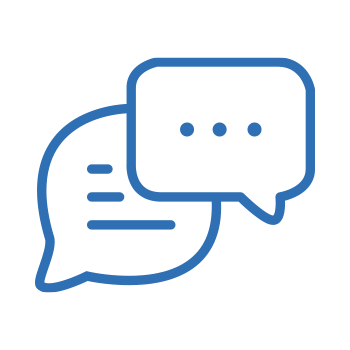
General information
Since the examinations are sometimes very complex, we ask you to bring adequate time with you. Unfortunately, waiting times cannot always be avoided, despite having made an appointment, because the cooperation of the children is not predictable. If you do not want to have the hearing and speech tests performed on the same day, this can be done on different days. Please bring the findings you have, the yellow examination booklet as well as a referral and the insurance card to the appointment.
The pediatric audiology consultation takes place by appointment only in the Munich Comprehansive Hearing Center in the Ismaninger Str. 33.
For medical emergencies please contact our ENT outpatient clinic (phone +49 89 4140 2390), if necessary also via the emergency center (phone +49 89 4140 6300)


